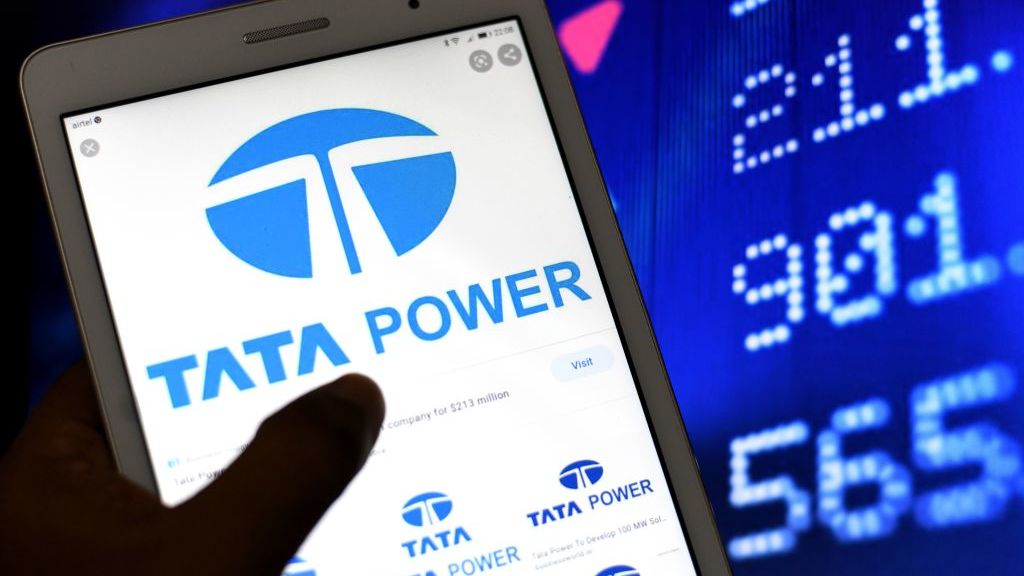Hive ransomware group claims cyber attack on India’s Tata Power
The Indian energy company reported last week that its IT systems were down, with customers reporting difficulties in paying their bills


The Hive ransomware group has claimed an attack on Tata Power, a leading Indian energy company, and encrypted its systems with ransomware.
Hive claimed to have encrypted the systems of the electric utility subsidiary of Tata Group on 3 October at around 7 pm, disclosing the attack on 24 October in a post on its leak site.
The dumped sample of files includes employment contracts, supplier contracts, 'master' files on various employees, documents detailing senior executives' remuneration packages, and more.
This comes after Tata Power declared on 14 October in a stock exchange filing it had suffered a cyber attack on its IT infrastructure, impacting some of its IT systems. The company said it had taken steps to retrieve and restore the systems, without revealing what kind of attack it was or who it was carried out by.
“All critical operational systems are functioning; however, as a measure of abundant precaution, restricted access and preventive checks have been put in place for employee and customer-facing portals and touch points,” the company said at the time.
A number of Tata Power customers have reported difficulties paying their energy bills on Twitter, with some stating that they have been disconnected from the service for not being able to complete the payment. Some also reported that they made the payment but were still receiving calls that their bill hadn’t been paid.
IT Pro has contacted Tata Power for comment.
Get the ITPro daily newsletter
Sign up today and you will receive a free copy of our Future Focus 2025 report - the leading guidance on AI, cybersecurity and other IT challenges as per 700+ senior executives
Hive is one of the most successful ransomware organisations currently in operation and is run in a similarly 'professional' fashion as other high-profile gangs of past and present, such as REvil and LockBit.
Once infected, victims are taken to a bespoke portal where there are agents working for Hive that guide victims through the ransom payment process via live chat functionality.
Hive is known for its aggressive and unsympathetic approach to negotiating ransom payments and has been observed using tactics such as triple extortion - a method becoming increasingly popular among the most well-resourced groups.
RELATED RESOURCE

Facilitating Fintech
Reducing the risk of potential data interception among fintech solutions
The attack on Tata Power is the latest in a series of attacks carried out by the ransomware organisation. In September, it claimed an attack on the New York Racing Association (NYRA). The NYRA reported the attack on 30 June, after learning that its IT operations, website availability, and member data were compromised.
A few days before this, the group claimed responsibility for a data breach at Bell Canada subsidiary Bell Technical Solutions (BTS). The breach exposed personally identifiable information of its Ontario and Québec-based customers, and compromised and encrypted BTS’s systems.
Zach Marzouk is a former ITPro, CloudPro, and ChannelPro staff writer, covering topics like security, privacy, worker rights, and startups, primarily in the Asia Pacific and the US regions. Zach joined ITPro in 2017 where he was introduced to the world of B2B technology as a junior staff writer, before he returned to Argentina in 2018, working in communications and as a copywriter. In 2021, he made his way back to ITPro as a staff writer during the pandemic, before joining the world of freelance in 2022.
-
 Bigger salaries, more burnout: Is the CISO role in crisis?
Bigger salaries, more burnout: Is the CISO role in crisis?In-depth CISOs are more stressed than ever before – but why is this and what can be done?
By Kate O'Flaherty Published
-
 Cheap cyber crime kits can be bought on the dark web for less than $25
Cheap cyber crime kits can be bought on the dark web for less than $25News Research from NordVPN shows phishing kits are now widely available on the dark web and via messaging apps like Telegram, and are often selling for less than $25.
By Emma Woollacott Published
-
 ‘Phishing kits are a force multiplier': Cheap cyber crime kits can be bought on the dark web for less than $25 – and experts warn it’s lowering the barrier of entry for amateur hackers
‘Phishing kits are a force multiplier': Cheap cyber crime kits can be bought on the dark web for less than $25 – and experts warn it’s lowering the barrier of entry for amateur hackersNews Research from NordVPN shows phishing kits are now widely available on the dark web and via messaging apps like Telegram, and are often selling for less than $25.
By Emma Woollacott Published
-
 Healthcare systems are rife with exploits — and ransomware gangs have noticed
Healthcare systems are rife with exploits — and ransomware gangs have noticedNews Nearly nine-in-ten healthcare organizations have medical devices that are vulnerable to exploits, and ransomware groups are taking notice.
By Nicole Kobie Published
-
 Alleged LockBit developer extradited to the US
Alleged LockBit developer extradited to the USNews A Russian-Israeli man has been extradited to the US amid accusations of being a key LockBit ransomware developer.
By Emma Woollacott Published
-
 February was the worst month on record for ransomware attacks – and one threat group had a field day
February was the worst month on record for ransomware attacks – and one threat group had a field dayNews February 2025 was the worst month on record for the number of ransomware attacks, according to new research from Bitdefender.
By Emma Woollacott Published
-
 CISA issues warning over Medusa ransomware after 300 victims from critical sectors impacted
CISA issues warning over Medusa ransomware after 300 victims from critical sectors impactedNews The Medusa ransomware as a Service operation compromised twice as many organizations at the start of 2025 compared to 2024
By Solomon Klappholz Published
-
 Warning issued over prolific 'Ghost' ransomware group
Warning issued over prolific 'Ghost' ransomware groupNews The Ghost ransomware group is known to act fast and exploit vulnerabilities in public-facing appliances
By Solomon Klappholz Published
-
 The Zservers takedown is another big win for law enforcement
The Zservers takedown is another big win for law enforcementNews LockBit has been dealt another blow by law enforcement after Dutch police took 127 of its servers offline
By Solomon Klappholz Published
-
 There’s a new ransomware player on the scene: the ‘BlackLock’ group has become one of the most prolific operators in the cyber crime industry – and researchers warn it’s only going to get worse for potential victims
There’s a new ransomware player on the scene: the ‘BlackLock’ group has become one of the most prolific operators in the cyber crime industry – and researchers warn it’s only going to get worse for potential victimsNews Security experts have warned the BlackLock group could become the most active ransomware operator in 2025
By Solomon Klappholz Published